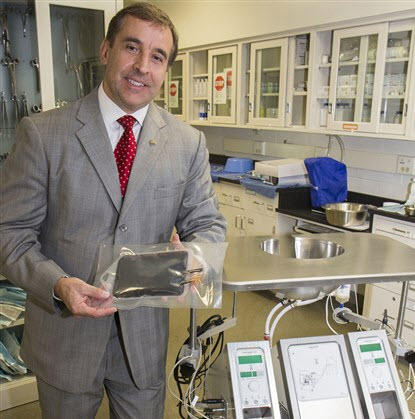|
Story from Thomasville Times-Enterprise
PITTSBURGH—Livers and other organs begin lacking oxygen the moment they are removed from the donor and may have damaged tissue by the time a transplant occurs. For the past 40 years, donor organs have been kept in “cold static preservation” — at less-than-ideal temperatures and levels of oxygenation — while being transported and prepared for transplantation. But now Paulo Fontes and his colleagues at the University of Pittsburgh School of Medicine, UPMC and the McGowan Institute for Regenerative Medicine have developed machine-perfusion technology that preserves donor livers by pumping them with a form of cold artificial blood known as a “cell-free oxygen-carrier solution.” The process is designed to keep donor organs oxygenated throughout the entire organ-preservation process before transplantation. If successful in human clinical trials, the technology could preserve more donor livers, reduce mortality among those on the waiting list and provide them with better post-transplant outcomes. For full story, click here.
0 Comments
Leave a Reply. |



